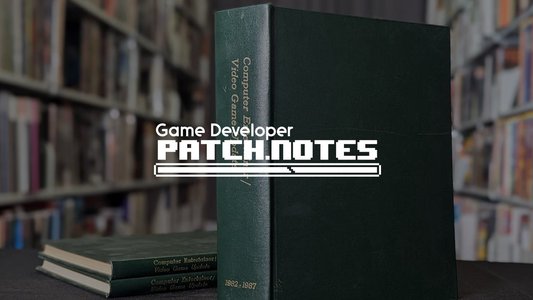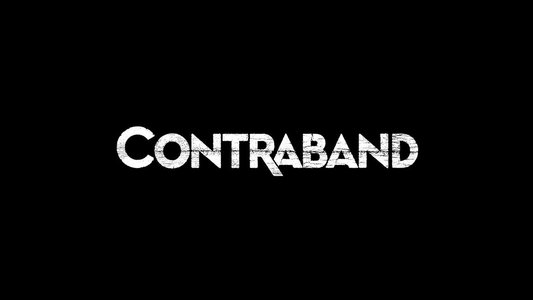The 2011 Game Developers Conference saw a record 19,000 attendees this year across more than 450 lectures. At the event, industry notables converged to discuss and debate, often passionately, the issues most important to the art and business of making games. What were the main takeaways of this year's GDC? While the event was home to an unusually broad slate of topics, from new social strategies to retro postmortems, we've identified five main takeaways from the event that look to be the most notable out of GDC 2011. Meanwhile, if you'd like to catch up on Gamasutra's coverage of the event, please visit our designated GDC 2011 hub, where we've gathered all of our write-ups and reports from the event. There Are A Lot Of Places To Sell Your Game This is something that's been increasingly obvious over the past few years, but when the entire games industry converges into one location, it's all the more clear: there are a lot of places and ways for you to sell your game. This was even more obvious at GDC 2011, where a wide array of professionals gave talks about games for retail, mobile, social, cloud and downloadable with each of these sectors offering various ways for a company to deliver and sell a game through those venues. There are more opportunities than ever for game makers to get their games to consumers. Not only does this have an impact on the way creators sell their games, it also will have an impact on recruiting at larger organizations, one major publisher told us. The problem of "how do I get experience if no one will hire me without any" is less of an issue. As talent pools go dry for some recruiters, there's a new body of water formed by people who have made great games on self-publishing-friendly platforms. These creative people are being picked up by bigger companies or happily continuing on independently. But what the emerging platforms also expose is that business models on traditional consoles and handhelds are not evolving quickly enough. As Facebook, mobile and online game companies embrace new business models, those models that are gaining traction with a true mainstream audience are not entirely compatible with the consoles' closed ecosystem. Retail and DLC are still viable for the major console publishers, but even they are making moves -- and making comments -- towards increasingly direct-to-consumer strategies. In the end, consumers will decide how they want their games -- with so many options today, the old guard might have a chink in its armor. Mobile Vs. Handheld Is A Real Battle As Apple's iPhone increasingly became a home for games, the question started to arise whether or not the device, along with the iPod Touch, would begin to encroach on territory held by traditional handheld makers Nintendo and Sony. Originally, some wondered whether Apple and the handheld manufacturers were in competition at all. GDC 2011 erased any doubt that the mobile vs. handheld battle is a real one. Nintendo president Satoru Iwata -- who in 2009 said the Nintendo DSi wasn't in competition with Apple's mobiles -- took time to address competition from mobile games. "For [social and mobile game companies], content is something created by someone else," he said during his GDC 2011 keynote, without naming names. "Their goal is to just gather as much software as possible, because … that is how they profit. The value of video game software does not matter to them. … The fact is, what we produce has value, and we should protect that value." Meanwhile, while Iwata gave his speech, Apple CEO Steve Jobs was right next door talking about his company's latest version of the iPad, which has already attracted many developers and their games. His reveal just happened to take place during Iwata's keynote. Maybe it was coincidence. In the end, it's consumers who will define "value," as Google Android continues to pick up speed and Microsoft's Windows Phone 7 appeals to developers with its Xbox Live connectivity. We'll find out soon enough what "value" in software means as Sony launches an Android-based PlayStation-certified phone with the Xperia Play and the codenamed high-end Next Generation Portable. And the leader Nintendo, which has expressed concern over low-budget, low-priced games, will see if the Nintendo 3DS and its eye-catching 3D stereoscopic features and stable of known game brands can withstand the push. No One Really Knows What "Gamification" Is Now, two industry events -- the DICE Summit and GDC 2011 -- have hosted gamification "debates" that started out with the exact same question for game design experts: "How do you define gamification?" These debates then go on and purely become semantics arguments, because it seems no one knows what gamification really is -- so the most interesting thing to talk about instead is the word itself and its meaning. It's hard to talk about gamification's actual application if no one can agree on what it is. Nevertheless, the definitions of the term heard this week were interesting and entertaining. Ian Bogost with Georgia Institute of Technology called it "The easiest way to talk to marketers about games," adding that it's "a very efficient way to get a hot cultural commodity into your product." Schell Games' Jesse Schell called it "Taking things that aren't games and trying to make them feel more like games." But even with fairly clear interpretations as those, people seem to talk past each other when discussing "gamification," because the term itself has so many connotations. Eventually at GDC 2011, the gamification debate turned into an issue of whether gamifcation can reward players intrinsically as well as extrinsically. Then Schell pointed out that the definitions of "intrinsic" and "extrinsic" among psychologists is even "squirrely." Then the GDC 2011 debate became a discussion of whether or not the industry should just stop using the word. Maybe it should. But on the other hand, the discussions still make for good entertainment, and always lead to some kind of interesting insight into what games can be besides escapist male power fantasies. Indie Games Are Bigger Than Ever Attendees at the Independent Games Festival Pavilion on GDC 2011 show floor were met with big crowds and typically four people at one time playing increasingly physical games of Copenhagen Game Collective's B.U.T.T.O.N. That wasn't the only sign of sharp rise of talent and interest in the area of indie games. Markus "Notch" Persson's Minecraft was a big winner not only at the IGF Awards where the game won the Seumas McNally Grand Prize and Audience Award, but it also won awards for innovation, best downloadable game and best debut game at the Game Developers Choice Awards, where it went up against big-budget triple-A titles. Talks from indie developers like Monaco creator Andy Schatz, Limbo gameplay designer Jeppe Carlsen and a number of developers who presented at the "Failure Workshop" were all very well-attended at GDC 2011. Sure there are always discussions of "what is an indie," but maybe we shouldn't look too far into it -- at all of these indie-related events and in all of these games related to the term "indie," there is a certain unique flair. More and more developers are creating memorable experiences without big resources, putting lifestyles on the line for their vision. Indie games really are bigger than ever. Design For "Core" Games Still Matters With all the talk surrounding platforms like Facebook and new mobile devices, there was still great interest at GDC 2010 for design and production of more traditional "core" games. Joel Goodsell with Resistance developer Insomniac Games offered up a detailed explanation of combat design in a well-attended lecture, using slides and video to convey design only relatable to one of the most core genres, the FPS. Epic Games, which unabashedly caters to the core gamer with games like Gears of War and Unreal Tournament, was on hand also. Cliff Bleszinski described the rise of the "power creative," or the public-facing game designer. Epic's executive producer Rod Fergusson was also there describing how timeliness is your friend when creating games. Ubisoft's Richard Rouse talked about morality systems in games, which is increasingly applicable to today's titles which continue to offer more and more player choice. Separately, EA's Ian Milham talked about art direction in big-budget hit Dead Space 2, Retro Studios described the development of the well-received Donkey Kong Country and StarCraft II lead designer Dustin Browder explained how making the game was like "inventing Basketball 2." So even though the buzz talk might be around social and mobile trends and how retail is fading, plenty of GDC 2011 attendees showed a lot of passion for making big-budget, "gamers' games," and we're sure that a lot of creators who are making games on emerging platforms were in attendance at these talks, ready to learn from years of experience that resides in the core gaming sector.
Round-Up: The Top 5 Trends Of GDC 2011
March 7, 2011

Tags:
event-gdc
Subscribe to our newsletter
About JikGuard.com
JikGuard.com, a high-tech security service provider focusing on game protection and anti-cheat, is committed to helping game companies solve the problem of cheats and hacks, and providing deeply integrated encryption protection solutions for games.
Top

This Motorola foldable is on sale for $100 off - here's why I recommend it over most slab phones
Aug. 9, 2025

The best Linux distros for beginners in 2025 make switching from MacOS or Windows so easy
Aug. 9, 2025

I answered the million-dollar question about buying laptops - here's the ultimate guide
Aug. 9, 2025

3 portable power stations I travel everywhere with (and how they differ)
Aug. 9, 2025

I tried Lenovo's new rollable ThinkBook and can't go back to regular-sized screens
Aug. 9, 2025
Recent

This Motorola foldable is on sale for $100 off - here's why I recommend it over most slab phones
Aug. 9, 2025

The best Linux distros for beginners in 2025 make switching from MacOS or Windows so easy
Aug. 9, 2025

I answered the million-dollar question about buying laptops - here's the ultimate guide
Aug. 9, 2025

3 portable power stations I travel everywhere with (and how they differ)
Aug. 9, 2025

I tried Lenovo's new rollable ThinkBook and can't go back to regular-sized screens
Aug. 9, 2025

5 iOS 26 features that made updating my iPhone worthwhile (and how to try them)
Aug. 9, 2025

Healthcare cybersecurity failures put patient safety at risk, Modat warns
Aug. 9, 2025

France telecom exposes millions of customer records
Aug. 9, 2025

GPT-5 launch sparks backlash as OpenAI removes ChatGPT model choice
Aug. 9, 2025

Patch Notes #17: Raven workers secure union contract, VGHF acquires Computer Entertainer, and Ziff Davis makes layoffs after bumper quarter
Aug. 8, 2025
Blog

Unreal Engine Game Protection Solution
Aug. 8, 2025

How games detect speed-hack cheats
Aug. 6, 2025

JikGuard game protection supports Google Play's 16 KB page-size compatibility requirement
Aug. 1, 2025

JikGuard game protection supports Steam Deck
July 30, 2025

Security Risk Analysis for Racing Games
July 28, 2025

Are there hacks that increase gacha pull rates?
July 24, 2025

VMOS Open-Source: New Threat to Game Security
July 18, 2025

How Games Detect Black and Gray Studio
July 15, 2025

How Games Detect iOS Jailbreaks
July 11, 2025

FPS Game Anti-Cheat Solution
July 9, 2025
Random

Why I ditched Google Chrome for Firefox Focus within 10 minutes of using the mobile browser
Aug. 8, 2025

Canonical's OpenJDK builds promise Java devs more speed - and a whopping 12 years of security support
Aug. 8, 2025

OpenAI's GPT-5 is now free for all: How to access and everything else we know
Aug. 8, 2025

8 settings you should change on your Motorola phone to easily improve the battery life
Aug. 8, 2025

5 ways business leaders can transform workplace culture - and it starts by listening
Aug. 8, 2025

France telecom exposes millions of customer records
Aug. 9, 2025

My 4 favorite image editing apps on Linux - and two are free Photoshop alternatives
Aug. 8, 2025

Microsoft rolls out GPT-5 across its Copilot suite - here's where you'll find it
Aug. 8, 2025

GPT-5 launch sparks backlash as OpenAI removes ChatGPT model choice
Aug. 9, 2025

Avalanche Studios halts active development on Xbox console exclusive Contraband
Aug. 8, 2025
Most Views

How Games Detect GameGuardian
March 17, 2025

Explanation of Game Anti-Cheat Solutions
March 17, 2025

Cheat Engine Modifier Detection Solutions
March 18, 2025

Explanation of Unity Engine Encryption Solutions
March 17, 2025

How to Anti Hack in Client-Side Games
May 21, 2025

Cocos Engine Encryption Solution
April 8, 2025

How Games Anti-Debugging
April 15, 2025

Cloud Phone Detection Solution for Gaming
May 21, 2025

How Games Detect Frida
March 25, 2025

How Games Detect PlayCover
March 26, 2025


